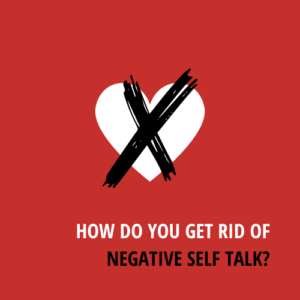Negative self-talk is all of those thoughts you have when you are criticising yourself and cutting yourself down. You are telling yourself that you are not good enough, people will reject you in some way, you will screw things up. This list of possible negative self-talk themes is never ending. We don’t need bullies in the outside world, we bully ourselves plenty with our own thoughts.
Over-coming negative self-talk involves understanding how your thoughts flow through your mind and learning that you have choice as to whether to engage with them or not. It also involves learning about your hot issues, and possibly (like almost half the population), learning about your attachment fears. But here is a quick experiment for you so that you learn a valuable skill regarding how your thinking works. Check it out.
Observe yourself: experiment time
Let’s do a small experiment. Put on an alarm for one minute. Grab a piece of paper and pen.
I want you to simply make a dot on the page every time you have a thought.
Example of random thoughts:
Is this what I am supposed to do? = write a dot
I can hear the air-conditioning = write a dot
What will I have for lunch = write a dot
Why did Ella look at me like that? = write a dot
Is a minute up? = write a dot
After one minute you will have a line of dots
= • • • • • • • • • • • • • •
So set your timer for one minute, and get ready to do the above exercise. Press start and go. One dot every time you have a thought.
One minute finishes.
How many dots did you have? Approximately 12–14 thoughts per minute is common. Were you more or less? Was it weird to just sit and notice your thoughts?
Punchline: What happened to your thoughts after you drew the dot? Most people say the thought went away and they were just sitting; perhaps they were having their next thought.
The interesting thing is that when we draw the dot, we are acknowledging the thought (without any intention of engaging in the thought – because of the exercise condition). And this is exactly what we can do in in real time. When we acknowledge our thoughts and choose not to engage, they do usually move on by, down our river of consciousness.
Our thoughts are ideas that pop into our head. They are based on many things: our assumptions, our belief systems, our previous experiences and lessons from our world experience, our fears. Our thoughts can come from fact or complete fiction. Our thoughts continue to pop into our heads and flow through our conscious awareness. They are like songs on a play list – some are new, but most are programmed to repeat as they are on our ‘popular’ or ‘most played’ list. When they have been played many times before, they are flagged to keep being selected and played.
But here is the thing: they are just thoughts. They are just ideas, creations, impulses, desires, judgements. Thoughts are not fact. We are not our thoughts.
Just because a thought has popped into your mind does not mean that you have to agree with it, subscribe to it, or align yourself with it. Just like we engage in people-watching, we need to do ‘thought watching’, and realise that thoughts are just ideas or information about our ‘issues’, our priorities, our fears, our previous pain, our most-played list. This is about honouring each moment.
Each moment is important information about how your head works and an important opportunity to get even healthier in our thinking patterns. Each moment is an opportunity to shape our future moments. Just as we are distant from the people who we ‘people watch’, we need to create distance from our thoughts to ‘thought watch’.
One very big hurdle is the power and the sting of some of our thoughts. Just like a bully knows where the vulnerable spots are, so too does our own mind when we are brainstorming ways to create self-doubt and self-criticism. We go for the soft, vulnerable areas. We can see accusations from others as ungrounded much more easily than when the accusations come from us. We can struggle to distance ourselves from our thoughts. Our negative self-talk usually contains cruel distortions that are so out of perspective that they have no basis. This negative self-talk has its roots somewhere: childhood, peer or family conflicts, critical tone from parents, or tricky ‘problem people’ in our lives. We have usually had our negative self-talk for so long that it has become the norm and we have started to believe the cruel messages.
Have a go at the dot test. Challenge yourself to observe your negative self-talk thoughts, distance your self, and challenge them.
Wish you well, take care.



Subscribe To Our Newsletter
Join our mailing list to receive Psych wisdom, advice and encouragement once a month.
"The Skills we need are not just common sense, we need to learn them from somewhere"
You have Successfully Subscribed!